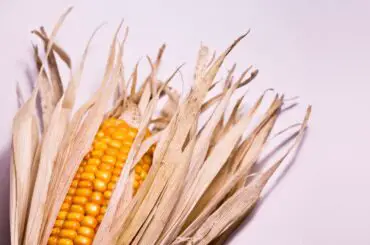If you are wondering about mushroom compost vs manure differences and similarities, this article would be useful for you. In fact, mushroom composting contains chicken manure itself and that fact makes it more complex to separate them. Manure could be either chicken manure or cow manure. Further, Mushroom compost is a byproduct of mushroom farming.
Further it consists of hay, animal manure and some other organic material as well. On the other hand, if we consider chicken manure it consists of poultry waste. Both of these are effective and productive fertilizer types and could be useful in different purposes for your vegetation.
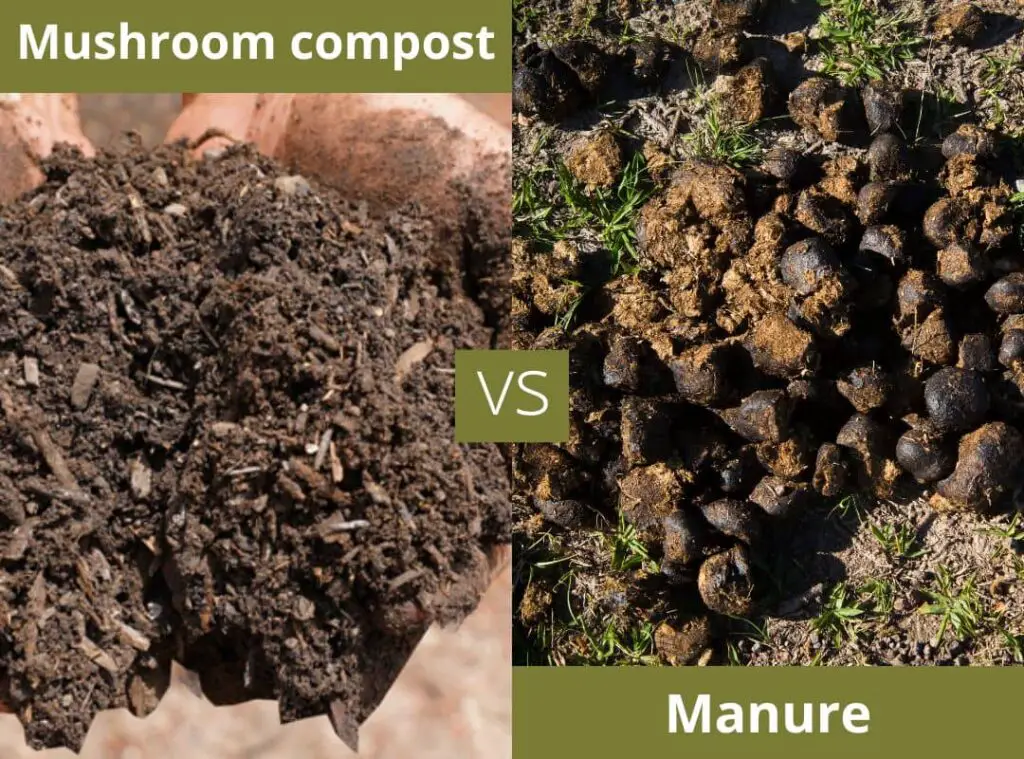
What is manure ?
Contents
Manure is the waste of the animals. It can be a mix of solid and liquid materials, and it’s usually made up of straw, bedding, and animal urine. Manure is produced by herbivores (plant-eating animals) and omnivores (animals that eat both plants and animals). The word “manure” comes from the Latin word for “dung,” which means “excrement.”
Manure is a fertilizer and it could be used for healthy and vigorous plant growth. There are different types of manures such as cow, chicken or horse manure. These organic fertilizers can act as great sources of Nitrogen, Phosphorus, and potassium. Using manure is an effective way of producing a productive and effective fertilizer. They are cost effective and do not release any pollutants as well. Furthermore, it can even kill the weeds and many other pests which would impact the plant’s growth in an unhealthy manner.
There are altogether three types of manure such as green manure, compost manure and farmyard manure. They would be effective in nourishing the plants. However, out of all of these manures, farmyard manure is the most famous manure type which you could use on your vegetations.
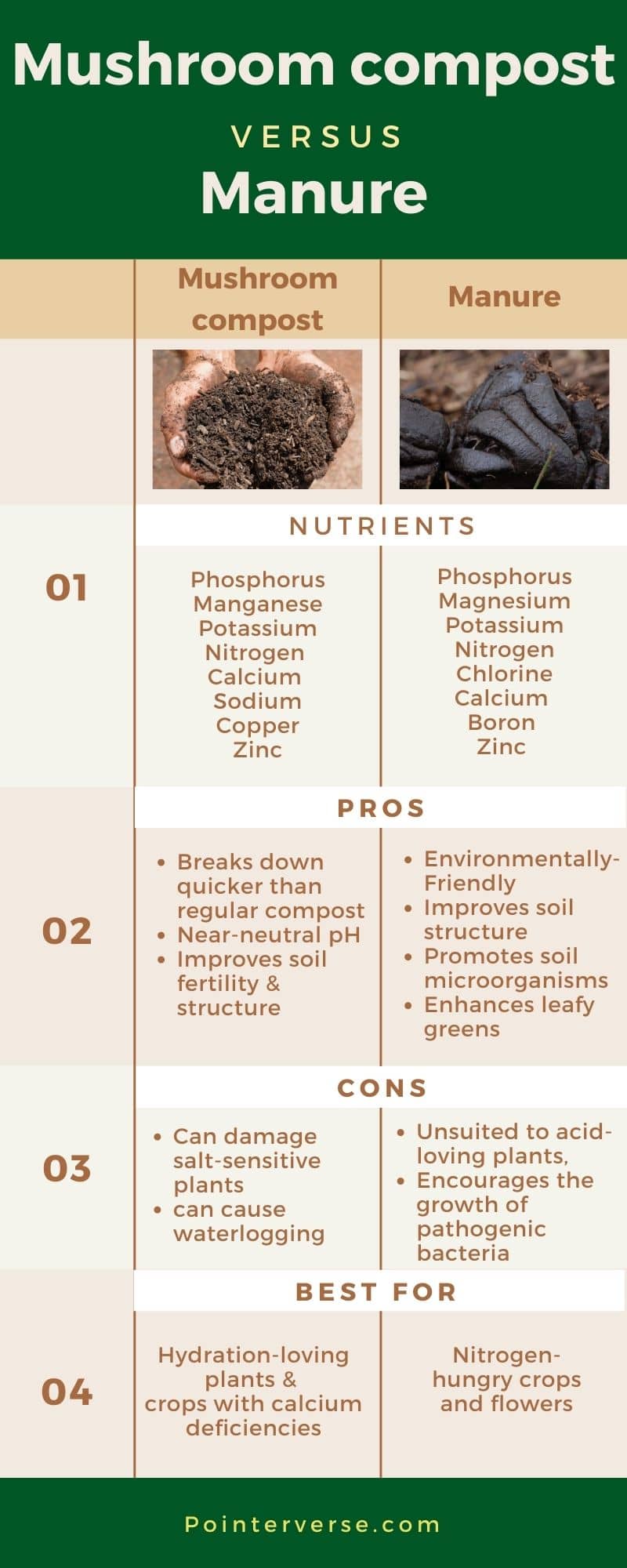
Mushroom Compost
Mushroom compost mainly is the leftover growing medium of mushroom . They contain elements such as hay, Poultry manure, corn cobs and other organic materials . There are other organic materials such as lime, peat moss or even some mushroom spores which are not steamed included in the mushroom compost. Once you mix all these ingredients , they will be kept for up to two years so that it would remove the unstable salt and make it more appropriate for gardening purposes.
Mushroom Compost Nutrients
Mushroom compost nutrients mainly come in salt form. That said, average commercial mix would contain about 1-2 % nitrogen , 0.6 % Phosphorus and 2 % potassium as well. Apart from that mushroom would contain additional micro and macronutrients such as calcium, Sulfur Manganese ,magnesium , Iron and copper as well. Not only that but also, it further contains zinc, Sodium as well.
Mushroom Compost Benefits
Mushroom compost contains an organic rich compost quality which would be beneficial for enhancing soil structure as well as in improving the fertility of the soil mix as well. They would in fact, aerate the clay-based soil mix by losing the free draining soil mixes and making them retain much moisture as well.
Mushroom compost contains a neutral ph. around 6.6-6.7 and that characteristics make them a perfect soil balancer as well. Apart from that it would release the nutrients at a slow pace which literally means they will be active for a longer period.
Disadvantages of Mushroom Compost
- Mushrooms have high components of soluble salt and due to that it would not be possible for you to use them for the germination process of the seeds and on the young plants.
- further it may also turn out to be fatal on salt sensitive plants such rhododendrons , azaleas, radishes and cucumbers too.
- Mushroom compost can retain excess moisture as well. So, these characteristics may sometimes contribute to waterlogged conditions.
- Hence these would not suit specially for plants which do not prefer to grow in soggy conditions. In fact chances are that it may lead to root rot.
Using Mushroom Compost
I suggest you use mushroom compost during spring to summer and it would act as a great topsoil or a deeper soil amendment. You could use about 1-3 inches of the compost for a 6 inches of garden soil and it would vary depending on your request. Apart from that you could use mushroom compost as 1-3 inch mulch layer and it would secure your plants from weeds. Lastly it could also conserve moisture as well.
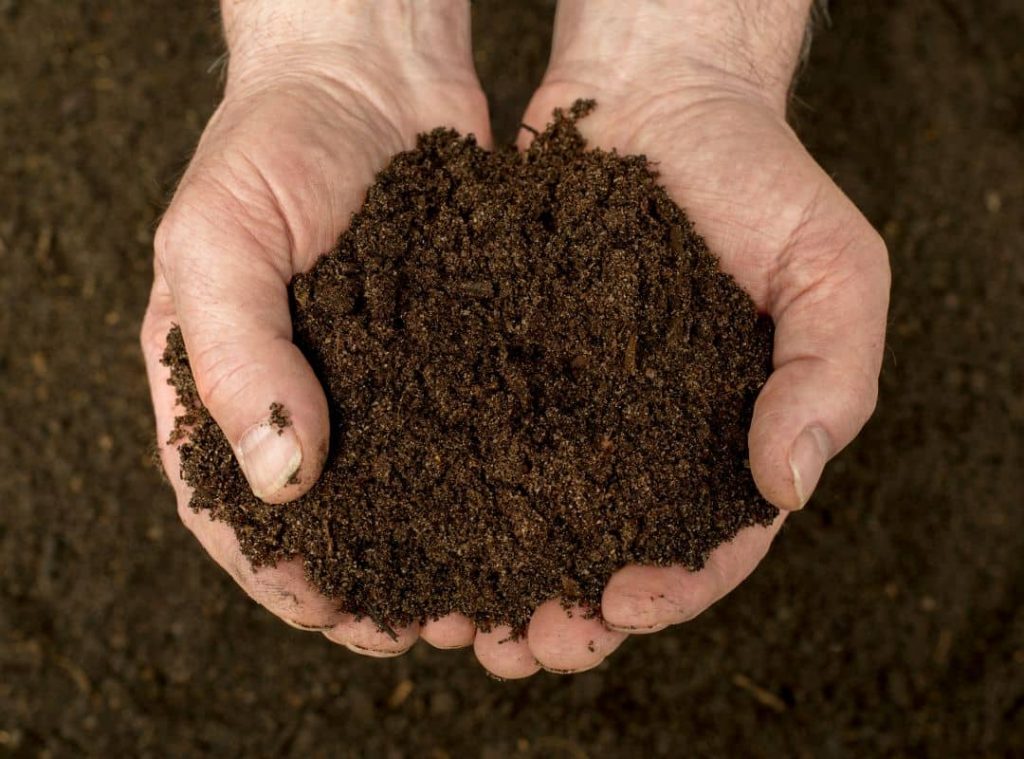
Chicken Manure
Chicken manure is more like the chicken droppings. Chicken manure is an effective and fairly productive organic fertilizer type. It was the ancient Egyptian people who tried this out as fertilizers for the first time.
They did this once they revealed that it is capable of producing plant strengthening properties. Thereafter people kept using them. You could see chicken manure forming in three main forms. For example, they will come up dehydrated, fresh and in composted ways.
Chicken Manure Nutrients
Chicken manure contains higher levels of Nitrogen. Apart from that it further contains 0.5 % phosphorus , 1.2 and 1.7 % potassium as well. Further they contain nutrients such as Calcium, Sulfur Iron Chlorine Boron, Molybdenum, Zinc Copper and Magnesium as well.
Chicken Manure Benefits
Chicken manure has a great drainage ability and it is similar to mushroom compost. Further it can also enhance the water retention ability also in poor soil mixes. Chicken manure is highly enriched with multiple nutrients as aforesaid. Thus, they would be quite beneficial in promoting the mechanism of microorganisms which would ultimately make your soil even more effective.
Chicken manure’s high nitrogen levels make the plants grow rapidly and vigorously. In fact, it would make the plants grow larger and enhance the development of the roots as well. Moreover, it would make the stems grow healthy too. Lastly, the slow release of the nutrients would help the plants to stay in bloom for a longer period too.
Disadvantages of Chicken Manure
Chicken manure is neutral in terms of the pH level. If I further elaborate their pH Level would be around 6.5 – 8.0 . This literally means you should avoid using them on plants such as azaleas, hydrangeas and blueberries. Keep in mind that the pH level varies depending on the manure age as well as on the food the birds consumed. Further if you use fresh uncomposted chicken manure, but can sometimes burn the plants due to the excessive levels of Nitrogen.
How to use chicken manure
You can use composted manure or even chicken pellets as a top dressing for about 1 inch on all your vegetables, preferably in spring. In addition to that you may also use 3.5-5 ounces of chicken manure per each square meter in the soil. Ensure that you are keeping a 4-week gap when you apply these and don’t forget to water them after every application of chicken manure on your crops.
If we do a rough comparison on these two, mushroom compost will contain nutrients such as Nitrogen, phosphorus, potassium Calcium , Manganese, sodium copper and zinc.
On the other hand, chicken manure would comprise Nitrogen, Phosphorus, potassium chlorine, boron, zinc calcium and magnesium etc. Mushroom compost would decompose at a faster rate when compared to the regular compost and they would enhance the fertility of the soil and improve the soil structure as well. Further chicken manure would usually come in pellet forms and they would improve the soil structure and activate the mechanism of the microorganisms in the soil.
Furthermore, mushroom compost can be unhealthy specially on the salt sensitive plants and lead for water logging as well. On the other hand, chicken compost would be unhealthy on acid loving plants and if you apply them fresh it would burn the plants. Lastly, I urge applying the mushroom compost for hydration loving plants and plants which have calcium deficiencies. Chicken manure could be added for plants which are lacking Nitrogen. So, this is a glimpse of the strengths and the weakness of using chicken manure and mushroom compost.
What Plants Benefit from Chicken Manure?
Chicken manure would be ideal for both annual and perennial plants which belong to the Brassica family in particular. For example, cabbage broccoli cauliflower plants would be benefited by using chicken manure.
Chicken manure would be quite vital in promoting a lush growth in these plants. Apart from these plants you may consider using chicken manure on plants such as tomato, lettuce , strawberry blackcurrant and on plum trees as well.
Mushroom Compost or Chicken Manure – Which Is Right for You?
If you have a soil mix where you need to balance heavy and loose garden soil and improve the fertility of it, you could go ahead with both mushroom compost as well as with chicken manure. Both of these would be quite effective.
However you can go ahead with any of these options as long as you apply them on the right plants. Furthermore both these are cost effective and widely available as well. More importantly you could use both these with so much ease too.
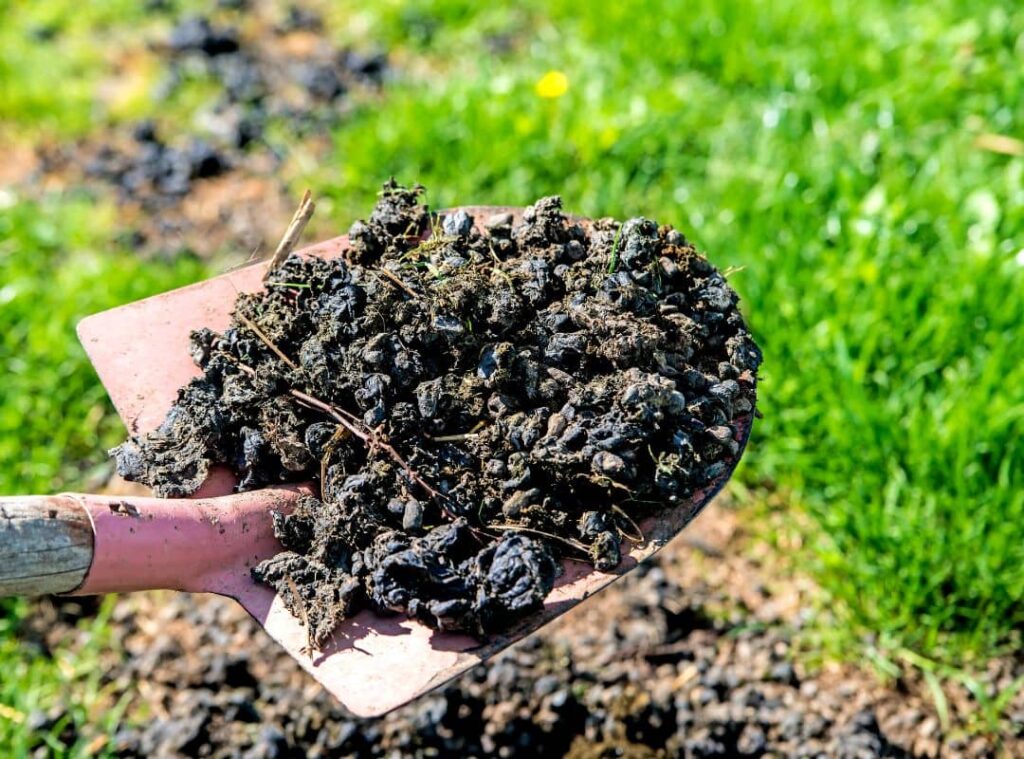
Cow Manure
If we further elaborate on cow manure, they would usually be the best manure type you could apply on your crops. If we consider cow manure itself, cows consume grass, and they would contain in the manure. You could easily find it as well. Using cow manure is also a highly beneficial way of fertilizing your plants.
Advantages of Cow Manure
As aforesaid, cow manure contains a significant amount of nitrogen and would act as a great source of fertilizers. Besides, it would increase the soil’s water holding capacity as well. This literally means you don’t need to water the crops on an often basis.
Furthermore, it would improve the airflow for your plants as well. In addition to that, it would also speed up the mechanisms of the healthy bacteria in the soil as well. Besides all these, cow manure is eco friendly and they would produce only a fewer number of greenhouse gasses as well.
Disadvantages of Cow manure
Cow manure is quite beneficial when you look at it from a soil perspective. However, they may also be perfect breeding sites for other bacteria such as Escherichia coli which is a pathogenic microbe. In addition to that, fresh cow manure contains a significant amount of ammonia which could be harmful to your crops. So, if you compost the cow manure and use it would be the best potion as then you can get rid of the pathogens entirely.
Mushroom Compost vs Cow Manure?
Both mushroom compost and cow manure would act as great sources of nutrients. They would help your plants to grow healthily. That said, I urge you to go ahead with the mushroom compost as they would be less tedious when compared with cow manure compost.
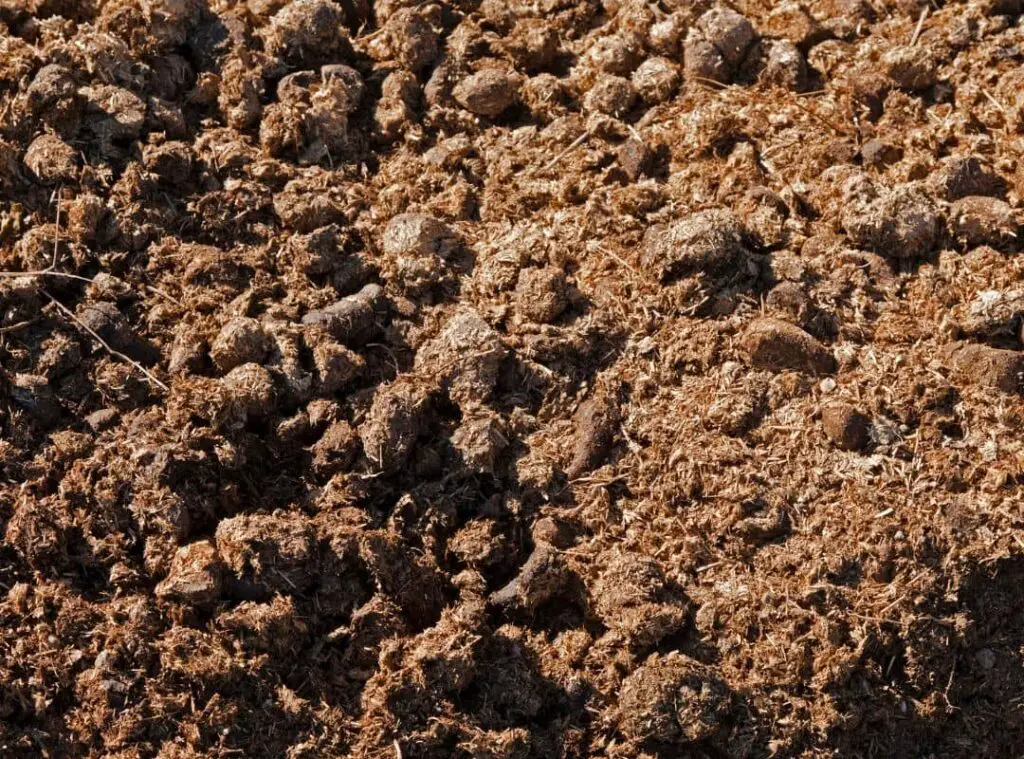
What’s the Difference Between Mushroom Soil and Mushroom Compost?
Mushroom soil is the undiluted substrate where the mushroom usually grows. On the other hand, mushroom compost is where you have allowed them to cure. Mushroom compost is somewhat consistent whereas mushroom soil would not be like that.
Hence the mushroom soil would be more clumpy in texture. Furthermore, they may contain high levels of soluble salt as well. The high levels of salt could be somewhat unhealthy on the vegetation.
Final words on Mushroom Compost Vs Manure
Anybody would love having plants in the surround of the home as they would add so much beauty and a sense of freshness. Many people opt to decorate their houses with plants rather than using other decorative elements. So, to ensure that these plants grow healthily and vigorously, I urge you to add mushroom compost or even manure since both of these options would work well for these plants.
Both of these would nourish the plants with the aforesaid nutrients. Further they would increase the water retaining capacity of the soil as well. Both mushroom compost and manure has their own advantages and disadvantages, and you need to be mindful of the plants you are applying them to. Once you apply them rightly you will see how your plants flourish and grow to their best ability.
Read Next : How Often To Turn Compost In Winter? (Winter Composting)


